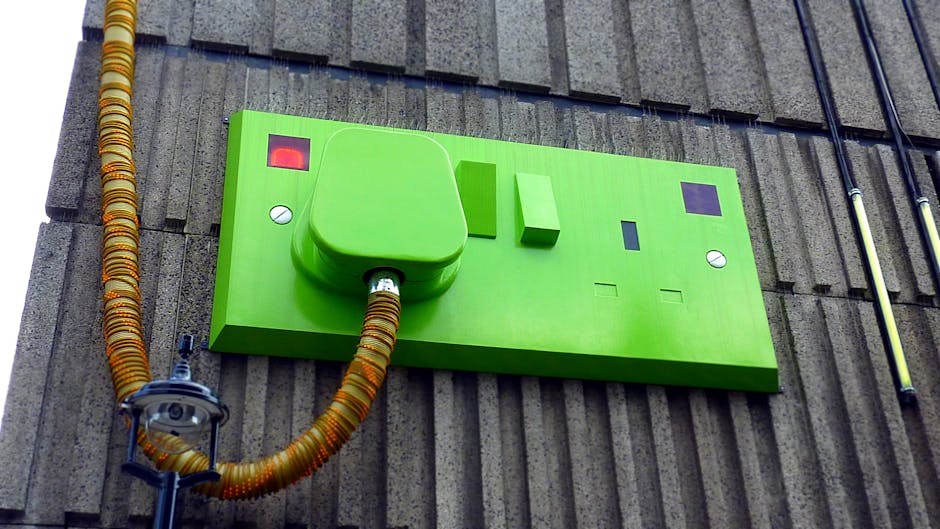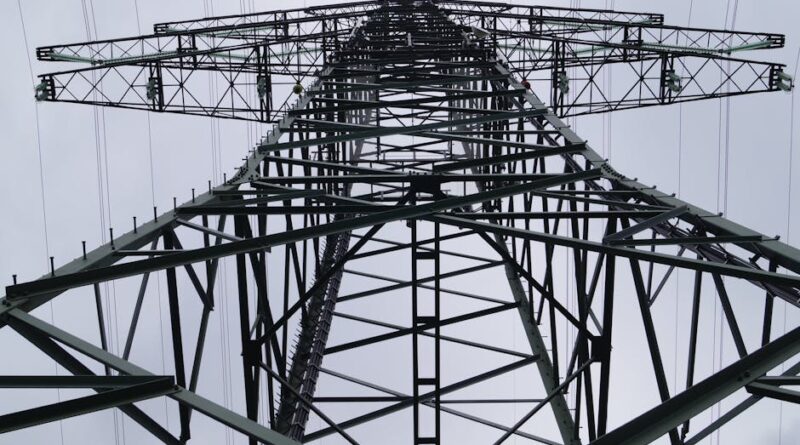Understanding Electrical Supply Standards in Industry
Did you know that the safety and efficiency of industrial operations often hinge on electrical supply standards? These standards play a crucial role in how we use electricity in factories and plants. But what exactly are these standards, and why do they matter?
In this article, we’ll explore the basics of electrical supply standards in the industry. We’ll break down the key concepts, explain their importance, and help you understand how they impact everyday operations. Lets get started!
What Are Electrical Supply Standards?

Electrical supply standards are guidelines that dictate how electricity should be generated, transmitted, and used in industrial settings. Think of them as the rules of the road for electrical systems.
These standards ensure safety, efficiency, and compatibility across various electrical devices and systems. Without them, you could have dangerous situations or equipment that simply doesnt work together.
Why Do Electrical Supply Standards Matter?

Understanding electrical supply standards is crucial for several reasons:
- Safety: Standards help prevent electrical accidents, which can lead to injuries or even fatalities.
- Efficiency: Adhering to these standards ensures that equipment operates at peak performance, saving energy and costs.
- Compliance: Many industries must comply with local, national, and international regulations. Following standards helps avoid legal issues.
- Quality: Standards ensure that products meet certain quality benchmarks, contributing to overall reliability.
In short, electrical supply standards protect people and property, promote efficiency, and ensure quality across the board.
What Are the Different Types of Electrical Supply Standards?

Electrical supply standards come in various forms, each serving a specific purpose. Heres a quick overview:
- International Standards: Set by organizations like the International Electrotechnical Commission (IEC), these guidelines apply globally.
- National Standards: Each country often has its own standards, like the National Electrical Code (NEC) in the United States.
- Industry-Specific Standards: Certain industries, like telecommunications or healthcare, may have specialized standards to meet unique needs.
Understanding these categories helps businesses comply with regulations and ensures safe practices.
How Are Electrical Supply Standards Created?

The creation of electrical supply standards is a collaborative process. Experts in electrical engineering, safety, and regulatory affairs all contribute. Here’s how it generally works:
- Research: Industry experts gather data on current technologies and practices.
- Drafting: A draft of the standard is created, taking into account safety, efficiency, and technological advances.
- Review: The draft is reviewed and revised by stakeholders, including manufacturers, users, and safety organizations.
- Publication: Once finalized, the standards are published and made available for industry use.
This careful process ensures that standards reflect the latest knowledge and practices while addressing real-world challenges.
What Are Common Misconceptions About Electrical Supply Standards?
Many people have misconceptions about electrical supply standards. Lets clear some of them up:
- Myth 1: Standards are optional.
In reality, many industries are legally required to follow these standards. - Myth 2: All standards are the same.
Standards vary based on region, application, and technology. it’s essential to know which apply to your situation. - Myth 3: Following standards is too expensive.
While there may be upfront costs, complying can save money in the long run through efficiency and safety.
Understanding these misconceptions helps to appreciate the importance of adhering to electrical supply standards.
How Do Electrical Supply Standards Impact Daily Operations?
Electrical supply standards influence many aspects of daily operations in industries. Here are some key areas affected:
- Equipment Selection: Standards guide businesses in choosing the right equipment for their needs, ensuring compatibility and safety.
- Training: Workers are trained to understand and follow standards, which enhances safety and productivity.
- Maintenance: Regular inspections and maintenance are based on standards, helping prolong the life of equipment.
For example, a manufacturing plant that adopts the NEC will ensure that all electrical installations are safe and efficient. This not only protects the workers but also reduces downtime due to equipment failure.
How Can Businesses Stay Compliant with Electrical Supply Standards?
Compliance with electrical supply standards doesnt have to be overwhelming. Here are some practical steps businesses can take:
- Stay Informed: Regularly review updates to standards that may affect your operations.
- Train Employees: Provide ongoing training to ensure employees understand and follow relevant standards.
- Hire Experts: Consider consulting with electrical engineers or safety experts to ensure compliance.
- Conduct Regular Audits: Periodically review your operations to ensure they align with current standards.
By following these steps, businesses can maintain compliance and avoid potential pitfalls.
What Should You Do Next?
Understanding electrical supply standards is crucial for anyone involved in industrial operations. Here are some actionable takeaways:
- Familiarize yourself with the relevant standards in your industry.
- Ensure proper training for all employees on safety and compliance.
- Regularly evaluate your systems and equipment for compliance.
For more insights on electrical safety in the workplace, check out this resource from the U.S. Occupational Safety and Health Administration (OSHA): OSHA Electrical Standards.
In conclusion, electrical supply standards in industry play a vital role in ensuring safety, efficiency, and quality. By understanding and adhering to these standards, businesses can create safer work environments and improve their operations significantly.
If you have more questions or want to dive deeper into specific aspects of electrical standards, feel free to reach out!



